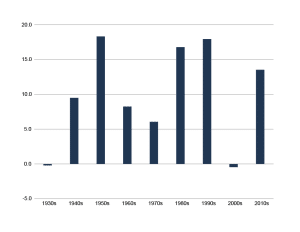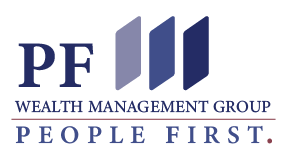5 Reasons to Start Succession Planning for Your Business
For business owners, deciding how and when to sell your company can be challenging to navigate. In fact, it is arguably the most important financial decision you will make. If keeping the business close to you is important, the most common transitions are to children, family members, key employees or an employee stock ownership plan. If you want to achieve the highest possible sales price, you might consider a strategic sale to a third party or even go public. Ultimately, this decision will have a big impact on your life for many years after the transition. Planning early – typically at least five to 10 years before you exit – can make all the difference. Here are the top five reasons that business owners should not delay succession planning:
1. It’s crucial to build a multi-disciplinary team.
When preparing to sell, most business owners have no idea who to contact to discuss a succession plan. No single advisor has the knowledge and experience to deliver an optimal succession plan. Therefore, a multi-disciplinary team is required and will typically include various professionals throughout the process, including financial planners, estate planners, attorneys, tax planners, business valuation services, investment bankers or business brokers, among others. Contacting a certified exit planning advisor is key to getting the process started. The certified exit planning advisor will be the quarterback of the engagement and will utilize the appropriate resources on your team when needed throughout the process.
2. You’ll have more time to factor in personal financial goals.
A good succession plan should address the business owner’s financial matters and personal goals. Does the exit of the business need to fund your retirement lifestyle? Are you ready to shut off all income streams from the business, including personal expenses covered like health care or life insurance? Are you ready to enter retirement, or would you prefer to stay involved with the business in some capacity? Working with a certified exit planning advisor can help you consider these critical questions in advance. The advisor will then be able to provide better guidance on your exit strategy options and will help determine the strategic value and fair market value of your business.
3. You’ll have more time to envision life without the business.
Often the hardest part of succession planning is imagining your life without the business. Most owners devoted countless hours, days and years to growing the company. Often, owners build a strong emotional attachment with their business and say, “I feel like I’m selling my child.” There is also the fear of losing control or being needed: What if the new owner doesn’t do things how you did? What if the new owner completely changes the company? Having the appropriate team in place to help prepare you for your next stage of life is key to developing a successful succession plan.
4. The cost of planning early outweighs the cost of doing nothing.
Of course, there will be costs incurred when developing any succession plan, particularly for services rendered from the various professionals that will guide your exit strategy. However, the cost of doing nothing is much more detrimental, not only for you but also for your family and employees. To create a successful succession plan, you should start planning approximately five to 10 years before your planned exit. This will help ensure you examine all possibilities and achieve the greatest value from the sale.
5. The process will be easier to navigate.
Approximately 50% of business transitions stem from a planned retirement timeline, while the other 50% occur after one of the “five D’s”: death, disability, divorce, disagreement, or distressed business. No matter the circumstances, creating a succession plan is a complicated, time consuming and emotional process. However, working with a certified exit planning advisor will make it easier to maneuver each step and ensure you’re not overlooking any critical element. The certified exit planning advisor will design a comprehensive plan that addresses the key areas of an exit strategy, including business, personal, legal, financial, tax and insurance considerations, as well as unexpected events.
Conclusion
Every business owner will eventually exit their business, whether voluntarily or involuntarily. Since your company is probably your largest and most complex investment, it plays a key role in your personal retirement plan. When the time comes to sell, it’s not only important to maximize profit but also to consider your personal and professional goals. Aligning your unique situation with the right exit strategy is essential for developing a successful succession plan.
For informational and educational purposes only and should not be construed as specific investment, accounting, legal, or tax advice. Certain information is based on third-party data and may become outdated or otherwise superseded without notice. Third-party information is deemed to be reliable, but its accuracy and completeness cannot be guaranteed. Neither the Securities and Exchange Commission (SEC) nor any other federal or state agency have approved, determined the accuracy, or confirmed the adequacy of this information. Please be advised that Buckingham only shares video and content through our website, Facebook, LinkedIn page, and other official sources. We do not post investment advice on WhatsApp, Telegram, other interactive applications, or other similar platforms. Rather, Buckingham provides investment advice only through individualized interactions. R-24-7537











